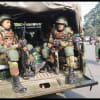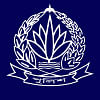82 senior cops made OSD for ‘role in polls’

In a rare administrative decision, the government has made 82 senior police officials Officers on Special Duty (OSD), including an additional inspector general of police, who served during the 2018 national election.
The officials include additional IG Abdul Alim Mahmud, 13 deputy inspectors general (DIGs), 49 additional DIGs, and 19 Superintendents of Police (SPs), according to three separate notifications issued by the Public Security Division of the Home Ministry's Police-1 branch yesterday.
However, the official orders did not specify the reason behind the decision.
Sources at the home ministry and Police Headquarters confirmed that all 82 officers had been involved in election duties during the controversial 2018 parliamentary polls.
At least 60 officials on the list, were earlier awarded the Bangladesh Police Medal (BPM), Bangladesh Police Medal (BPM-Service), President's Police Medal (PPM), and President's Police Medal (PPM-Service) by the ousted Awami League government for their role in 2018 election.
The home ministry on February 23 stripped 103 police officers of their medals awarded in 2018, including the listed 60 officials.
According to the notification, the award of the officials has been revoked as the officials were directly involved in the controversial 10th National Parliamentary Election held on December 30, 2018.
According to officials, the designation of OSD is generally considered an administrative reallocation, but in practice, it often strips officials of their functional responsibilities. While the government officially states that OSD status is part of administrative restructuring, it is widely perceived as a punitive measure when applied to officials removed from key positions.
In recent years, the police force has witnessed several high-profile reshuffles, with senior officers frequently being transferred or placed in OSD status in line with government policy decisions.
However, the move to sideline 82 senior police officials at once is unprecedented, said officials.
This sweeping action has sparked widespread discussions within law enforcement and political circles, with many questioning the rationale behind such an extensive shake-up in the police force.
On February 23, four DIGs of police, who had previously served as superintendents of police (SPs) and additional DIGs during the 2014 and 2018 national elections, were sent into forced retirement in "public interest".
The government announced the decision in four separate notifications signed by Nasimul Gani, senior secretary of the home ministry's Public Security Division.
According to sources at the Police Headquarters, at least 40 top-ranking police officers between the rank of assistant superintendent of police and additional inspector general of police were sent into forced retirement in the last six months, citing "public interest".
The move came after the Youth and Sports Adviser, Asif Mahmud Shojib Bhuiyain on February 21, said the SPs who were in charge during the 2018 "night-time" elections will be made officers on special duty (OSD) or sent into forced retirement. He made these remarks in a Facebook post.
On February 20, the government sent 22 admin cadre officials into retirement, raising the number of disciplined bureaucrats to 67 for their questionable role as deputy commissioners in the 2014 and 2018 elections under the Awami League regime.
On Wednesday, the public administration ministry placed 33 officials on special duty. Previously, it did the same to 12 other former DCs. Special duty in this context is considered a disciplinary measure.
The ministry is currently reviewing the records of the officials on the list, and most of them are likely to face punishment, according to officials with knowledge of the development. The last general election, held on January 7, 2024, was boycotted by the BNP and several other parties. In many places, AL leaders ran as independents to make the polls appear participatory.
In 2018, opposition parties alleged that ballot stuffing took place the night before the election.
Transparency International Bangladesh said ballot-stuffing took place in more than one centre in 33 of the 50 constituencies it had surveyed.
In the 2014 election, also boycotted by the BNP, 153 out of 300 lawmakers got "elected" without any vote as they were the only ones running for office in their constituencies.

 For all latest news, follow The Daily Star's Google News channel.
For all latest news, follow The Daily Star's Google News channel. 










Comments